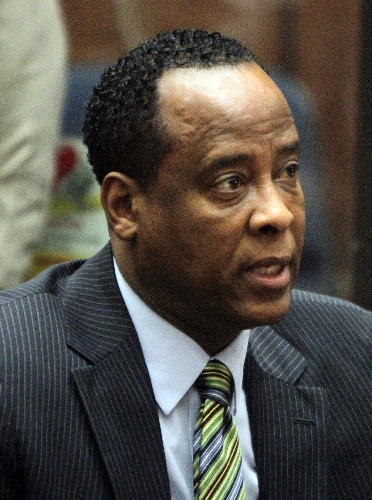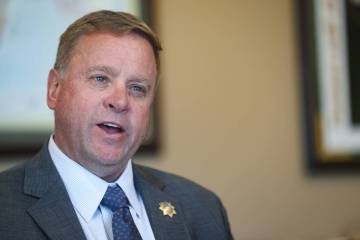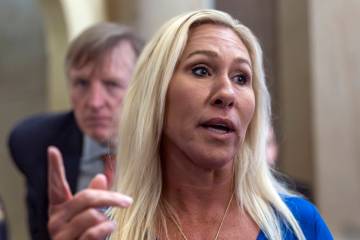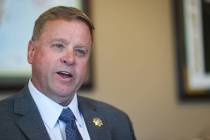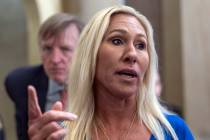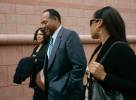Michael Jackson’s fame slows jury selection for doctor’s trial
LOS ANGELES -- In life and death, Michael Jackson generated the type of headlines that, like his songs, stick in people's minds.
Nowhere was that more evident than in a Los Angeles courthouse this past week when a judge asked 370 citizens whether any of them were unaware of the case against a doctor charged in the pop superstar's death. Not a single hand was raised.
That didn't surprise the judge, who knew he'd have to go out of this world to find people who hadn't heard of Jackson and the manslaughter case against Dr. Conrad Murray.
"We didn't expect you'd been living under a rock for the past several years, or that you made a pit stop from Mars," Superior Court Judge Michael Pastor told a group Thursday. A day later, when Pastor asked whether anyone didn't know about the case they might serve on, there was tittering.
Potential jurors who were called in an aborted effort to start the trial earlier this year were equally aware of the case. After three days of screening sessions, only one prospect had no knowledge of the case, and that person did not speak English.
It remains to be seen how many of the 145 prospective jurors are actually Jackson fans. The group filled out an exhaustive questionnaire that included questions about whether they ever considered themselves fans, purchased his music or books about him, or saw the posthumous film based on his final rehearsals, "This Is It."
Knowledge of Jackson, and indeed the case against Murray, is not automatic grounds for disqualification from jury service -- far from it. But experts and the judge presiding over Murray's trial have said they want people who can put aside what they know and base their decision on the physician's fate solely on what they hear in the courtroom.
"If you've got a jury of 12 people who have never heard of Michael Jackson, I'm not sure they qualify for jury duty," said Stan Goldman, a criminal law professor at Loyola Law School in Los Angeles.
Thousands of news stories have been published and broadcast about the case since Jackson's death in June 2009, including Murray's arraignment on an involuntary manslaughter charge about seven months later. Authorities contend the Houston-based cardiologist gave the singer a lethal dose of the anesthetic propofol in the bedroom of his rented mansion, but Murray and his attorneys deny any wrongdoing.
Prosecutors plan to argue that Murray's conduct was an extreme deviation from the "standard of care" that doctors are supposed to provide.
Pastor has expressed unwavering optimism in jurors throughout the screening process so far and hopes to be able to pick a jury from the pool of 145 prospective jurors qualified this past week in as little as a day.
Goldman said the process shouldn't be as difficult as in other high-profile cases, where jury selection can take days or weeks. "It's not your typical celebrity trial," Goldman said. "The guy on trial is not a celebrity -- it's just different."
"I don't think this is nearly as difficult as the case in which Michael Jackson himself was on trial," he said, referring to Jackson's 2005 child molestation case, which ended in the singer's acquittal.
Prosecutors and defense attorneys now have roughly two weeks to pore over a detailed 30-page, 113-question survey before prospective jurors are directly questioned. Legal teams often employ jury consultants to help them pick jurors who are likely to be favorable to their side, but it remains unclear whether Murray, who is cash-strapped, will have any consultants.
Family planned Escape in child molestation case
Jermaine Jackson says his family had secretly arranged to fly Michael to Bahrain if the pop icon was found guilty of child molestation.
Jermaine was quoted as telling The Times of London magazine out Saturday that a private jet financed by a friend was on standby to whisk his late brother to the Gulf emirate if the 2005 court case ended with a conviction.
Bahrain does not have an extradition treaty with the U.S.
Jermaine says his brother did not know about the escape plan but Michael would have "done it in a heartbeat" because "why should he go to jail for something he didn't do?"
The singer was found not guilty on all charges.
THE ASSOCIATED PRESS



